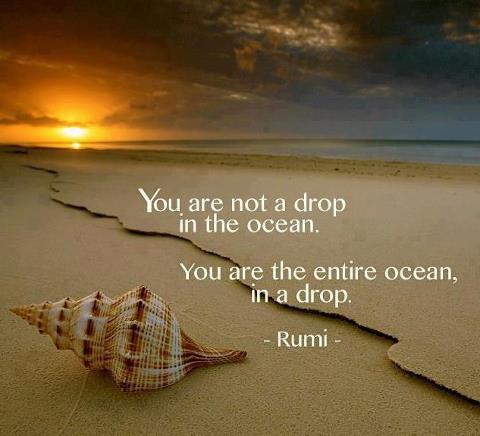 “If wisdom were an Olympic event then the gold medal winner would most likely be about 60 years old.”
“If wisdom were an Olympic event then the gold medal winner would most likely be about 60 years old.”
Stephen S, Hall offers this conclusion after researching into the nature of Wisdom for his book, “Wisdom, from Philosophy to Neuroscience”.
We are constantly exposed to many snippets of wisdom by sages both past and present. Our fleeting exposure to such quotes, as varied as the examples below, begs the question: “what defines wisdom?”
“Knowledge is knowing a tomato is a fruit. Wisdom is not putting it in a fruit salad.” ~ Unknown
“Knowledge speaks but wisdom listens.” Jimi Hendrix
“God grant me the serenity to accept the things I cannot change, courage to change the things I can, and wisdom to know the difference.” – The Serenity Prayer (Reinhold Niebuhr)
“It is unwise to be too sure of one’s own wisdom.” Gandhi
Qualities associated with wisdom recur in academic literature: a clear-eyed view of human nature and the human predicament; emotional resiliency and the ability to cope in the face of adversity; an openness to other possibilities; forgiveness; humility; and a knack for learning from lifetime experiences. Yet there is a yin-yang to the idea that makes it difficult to pin down. Wisdom is founded upon knowledge, but part of the physics of wisdom is shaped by uncertainty. Action is important, but so is judicious inaction. Emotion is central to wisdom, yet detachment is essential.
Perhaps the most important yin-yang of wisdom may be the different shapes it takes in the public and private domains. The public face of wisdom has to do with leadership, judgment and a responsibility to the collective future, offering a kind of moral inspiration to do the greatest good for the greatest number of people; this is the face that emerges when people are asked in surveys to name people they consider to be wise (the nominees invariably include people like Martin Luther King, Nelson Mandela, Mother Teresa and Gandhi).
The private face of wisdom may be our grandparents and other older family and community members. By comparison, the example of their wisdom is invisible to all but the inner circle of kin and acquaintances that benefit each day, in myriad specific ways, from their exercise of wisdom.
Stephen S. Hall summarises, in his book, the results of the research on wisdom which he refers to as the Eight Neural Pillars of Wisdom.
The Eight Neural Pillars of Wisdom
1. Emotion Regulation – Studies at Stanford University, including brain imaging experiments, have shown that older people process emotion differently than younger people on average. They are less likely to dwell on the negative, tend to value relationships more, and rebound from setbacks more quickly.
2. Compassion – Electrophysiological measurements of the brains of Buddhist monks in the midst of compassion meditation have identified a unique pattern of brain activation, known as a “gamma oscillation,” which may coordinate and synchronize mental activity in disparate parts of the brain during empathic understanding and acts of loving-kindness.
3. Moral Judgment – Cognitive neuroscientists, in a series of brain scanning experiments over the past decade, have identified a neural circuit involved in moral reasoning, and have shown that moral judgment can change depending on whether we are physically close to another person (“up close and personal” judgments) or are acting at a distance.
4. Humility – Business psychologists have shown that the combination of intense professional will and extreme personal humility are the essential traits in turning a good company into a great company; by contrast, CEOs who rank high in narcissism measures tend to be leaders—but bad ones. They put personal drama and egotism ahead of company performance.
5. Altruism – Scientists have used brain-scanning experiments to identify a tentative circuitry in the brain that monitors situations of social injustice, and seems to prompt a form of behaviour known as altruistic punishment—decisions in which a person sacrifices personal gain to punish a rule-breaker.
6. Patience – A sense of imagination about the future, a capacity which resides in the brain’s prefrontal cortex, helps suppress the impulse for immediate gratification, according to brain scanning experiments, and helps people plan goals and remain optimistic about the future.
7. Sound Judgment – Building on a huge amount of neuroscience that has been investigating decision-making, scientists are now teasing apart the process of neural valuation—how the brain attaches value to various choices. This may turn out to be the neural answer to a question asked by philosophers for centuries about the central challenge of wisdom: how do we decide what is most important?
8. Dealing with Uncertainty – Scientists at Princeton University, UCLA and elsewhere have been investigating how the brain reacts when it encounters the unexpected. Animal experiments suggest that habit allows us to react more quickly when the world is unchanging, but that in an environment of great flux, habit slows down our neural ability to adapt to changing circumstances.
So there we have it; we can learn about wisdom from its qualities. It is difficult to have a succinct definition of it because wisdom is something that wise people live rather than know.
Reference: “Wisdom, from Philosophy to Neuroscience” by Stephen S Hall